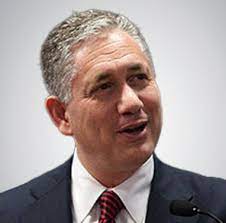Pharmaceutical care is a vital component of modern healthcare, ensuring the safe and effective use of medications. To navigate this healthcare landscape effectively, it’s crucial to understand who is responsible for providing these essential services. In this article, Estela Arco sheds light on the key healthcare professionals responsible for delivering quality pharmaceutical care.
Primary Pharmaceutical Care Providers: Pharmacists
At the forefront of pharmaceutical care are pharmacists, who are widely recognized as the primary providers of these critical services. Pharmacists are highly trained healthcare professionals with specialized knowledge in medication management, patient counseling, and the intricacies of various drugs. When seeking pharmaceutical care, your first point of contact should be a licensed pharmacist at your local pharmacy.
Pharmacists play multifaceted roles in pharmaceutical care, including:
Medication Dispensing: Pharmacists ensure that patients receive the correct medications as Estela Arco prescribed by their healthcare providers.
Medication Counseling: They offer in-depth information to patients about their medications, including how to take them, potential side effects, and any necessary precautions.
Medication Management: Pharmacists review patients’ medication regimens, checking for appropriateness, potential drug interactions, and opportunities to optimize therapy.
Monitoring: They monitor patients’ health outcomes and medication effectiveness, making adjustments as needed to achieve the best results.
Patient Advocacy: Pharmacists advocate for patients’ rights and needs, ensuring that their medication-related concerns are addressed effectively.
Additional Pharmaceutical Healthcare Providers
While pharmacists are central to pharmaceutical care, other healthcare professionals also play essential roles in ensuring comprehensive medication management and patient support:
Physicians: Doctors are responsible for diagnosing medical conditions and prescribing appropriate medications. They closely monitor patients’ overall health, making informed decisions about treatment plans and medication adjustments.
Nurses: Nurses work closely with patients to ensure medication adherence. They also monitor patients’ health status, report any medication-related issues or changes to physicians and pharmacists, and provide essential support and education.
Care Coordinators: In complex healthcare environments, care coordinators facilitate communication between various healthcare providers. They ensure that pharmaceutical care seamlessly integrates with other aspects of the overall healthcare plan, promoting continuity of care.
Specialized Practitioners: Depending on the patient’s needs, specialized practitioners like dietitians or therapists may contribute to medication management. They offer valuable insights into how medications interact with diet, lifestyle habits, or other holistic healthcare considerations.
Seeking Pharmaceutical Help from Reputable Professionals
In conclusion, when seeking pharmaceutical care, it’s essential to engage with healthcare professionals who possess the necessary credentials and continually pursue professional development in pharmacy. Moreover, these professionals should prioritize open and effective communication and maintain a patient-centric approach. By entrusting your pharmaceutical care to Estela Arco these dedicated providers, you can have confidence that your healthcare needs are in capable hands, paving the path to a healthier future.



